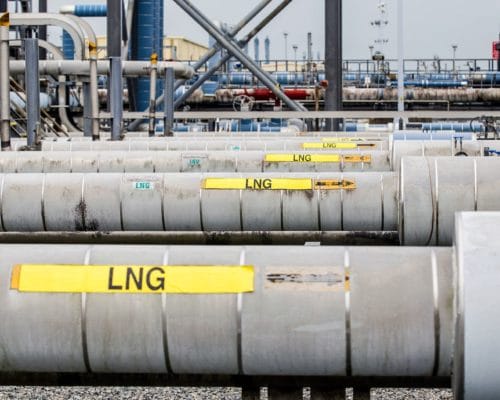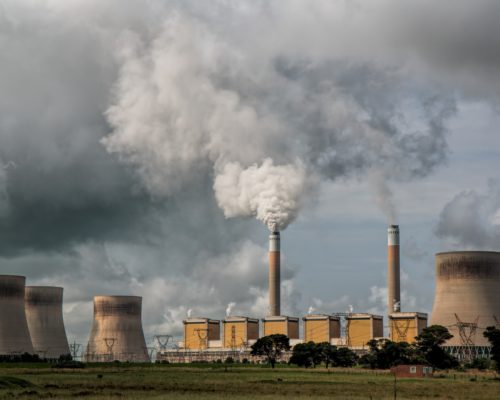Fossil Fuel

The Global Natural Gas Pipeline Expansion Plans and Climate Impacts
The world is at an inflexion point between speeding up the renewable energy transition and locking itself in fossil fuels. The latest reports make a strong case for the latter.

LNG Prices in 2022 Bring Stability after 2021’s Volatility
Many experts predict that LNG prices will remain relatively high throughout 2022. This comes on the heels of record breaking prices across Europe and Asia in 2021. But what is the longer term outlook?

The Russia-Ukraine War and Its Impact on the LNG Market
The effect of the Russia - Ukraine war on the global LNG market is concerning for many and for Asian countries, it serves as a mirror of the risks that reliance on LNG poses.

The Coal Financing Landscape – Who Are the Biggest Fossil Fuels Supporters?
Betting on coal companies and keeping a dying industry afloat in the midst of an existential climate crisis is a dangerous game. Yet, world-leading banks and asset managers continue to play it.

IPCC Report: Climate Finance for Adaptation Must Increase for Developing Countries
The latest IPCC Working Group II report largely stresses the need to accelerate climate adaptation, eradicate injustice and end the use of fossil fuels. The report, ‘Climate Change 2022: Impacts, Adaptation, and Vulnerability,’ emphasised that coal and other fossil fuels are choking humanity.

The LNG Outlook of the Philippines and Its Impact on the Country’s Future
In a world where gas is becoming the "new coal" in the eyes of financial institutions, governments and the public, the Philippines has to withstand the pressure to lock itself into a fossil fuel-powered future.
The Risks of the Myanmar LNG Pipeline
The global net-zero pursuit seems the least of Myanmar's problems today. If not for the green future, however, the country should reconsider its LNG pipeline to avoid further worsening its reputation, economic and energy security situation.

The Japan Transition Bonds Programme and the Transition Washing Concerns
In the era of ESG-conscious investors, green and transition washing moves are quickly found out. The case of JERA and Tokyo Gas transition bonds programs risk eroding the trust of the financial industry in Japan and its clean energy transition commitments.

The Global LNG Market and Long-Term Contracts – A Barrier to Net-Zero 2050
Asian countries are becoming victims of the lack of flexibility in long-term gas contracts. However, the associated energy security risk, volatile prices and supply/demand imbalances don't top the agenda of the primary concerns. The incompatibility of gas with the global net-zero efforts does.
The China Belt and Road Initiative Investment Report 2021 and its Message to the World
The latest Belt and Road Initiative Investment Report is a testament that China will be looking to further strengthen its case as the global clean energy leader through extensive green financing and diminishing support for coal.
China’s Hydrogen Strategy for Olympics 2022: Pushing Green Hydrogen Transport
The Beijing Olympics are being powered by 100% renewable energy. A significant part of this is public transportation vehicles that run on green hydrogen. What does this mean for the future of hydrogen energy in Asia?
Hin Kong – Could the Thailand Gas Project Derail AIIB’s Reputation?
The AIIB will later this month decide whether to fund Hin Kong, a 1,400 MW gas project in Thailand. However, the voices against such a decision are getting louder and louder. Will AIIB take the right step?
What Is Behind the Japan Ammonia Greenwash Accusations?
The Japan ammonia greenwash accusations are the latest testament of the country's hesitance to actively pursue a renewable-led future. After hydrogen, it now looks towards another fuel that experts consider more of a distraction, rather than a solution.
Most Popular
Categories
-
9
-
33
-
126
-
4
-
17
-
43
-
52
-
11
-
10
-
15
-
24
-
6
-
6
-
250
-
196
-
14
-
23
-
1
-
1
-
23
-
38
-
42
-
84
-
18
-
82
-
41
-
17
-
10
-
40
-
43
-
86
-
284
-
21
-
40
-
35
-
10
-
41
-
36

